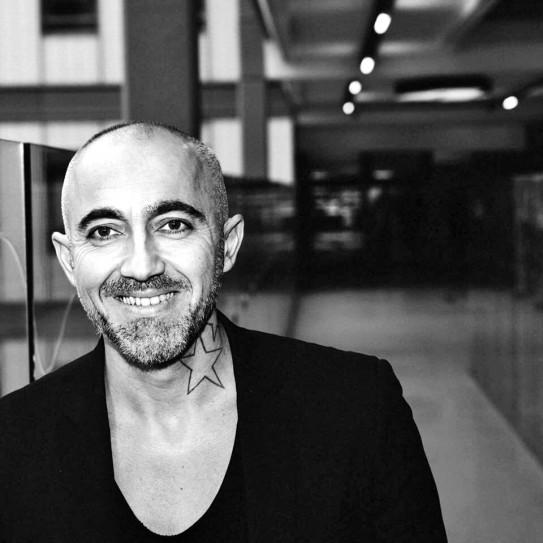
What’s in store for digital retail and business in 2023?
Our experts and partners take a look at the year ahead
After more than two years of pandemic-forced unpredictability, retailers began 2022 with renewed optimism.
Consumers showed a desire to get back to some sort of normality, while many businesses were in a better place, both digitally and technologically, to make the most of a change in fortune.
However, who could have predicted a war in Ukraine leading to global energy cost rises? Or the repercussions of Brexit, a shortage in materials and labour, strikes and inflation rises, effecting consumer confidence and business strategies?
UK retail sales volumes were estimated to have fallen 0.4 per cent in November, with online sales falling 2.8 per cent over the same month - although the latter was still almost 20 per cent higher than before COVID-19.
Yet, the UK is now in a recession and will remain in one for the whole of 2023 according to the Office of Budget Responsibility. Economic activity is slowing around the world as a cost-of-living crisis takes hold.
So, what does this all mean for 2023? What can digital retailers do differently to make the most of their digital operations without making huge, expensive, wholesale changes? And away from all the doom and gloom, what are the trends to look out for?
SQLI spoke to its experts, customers and partners to find out their thoughts on the year ahead.
What are your expectations for 2023 and have you any advice for digital brands and businesses?
Magnus Karlsson, Head of Architecture at H&M Group Business Ventures
This year will be tough for many businesses around the world. There’s a war happening, and recession in many countries. It's not the most positive outlook. But brands can still be successful in these markets as well, so it’s important to be the brand that people turn to during these difficult periods.
At the same time, you must focus on how your business comes out of this in 2024. You will need to drive down your costs and try to increase profitability, to be in the best possible position.
It’s also about investing in the right areas and making small, regular changes to your architecture. If you want a better overview of your customer data, you may want to build a customised API, but it’s better to build it slowly across a year, rather than throw a lot of money at it in one go.
At this stage, a composable architecture is of high importance to be able to gradually develop the business capabilities needed and not be forced into larger development investments.
My takeaway is that businesses should use this year wisely. Plan ahead and work towards what you want to achieve when the world is in a better place.
Jonty Sutton, SQLI UK CEO
I don’t think anyone will have sold ‘out of stock’ this Christmas and I dare say a few brands will have a lot left going into 2023 as customers watch their money more. I expect January to April to be pretty challenging from a retail perspective and that will then determine how people are spending their money and where they invest throughout the rest of the year.
I believe 2023 will flip back to the ‘experience’. This may vary from AR or VR type engagement when some of the investments from the past few years come to fruition, or more hybrid brand experiences, like digital pop-up stores or digital experiences in stores, where brands are creating a shopping experience for customers, rather than just selling products.
If a digital business hasn’t invested in these areas already, this is where I expect the money to go.
The key here is to create a unique shopping experience as opposed to just offering shopping retail. You have to offer customers something different in order to stand out from competitors and engage with your customers, now.

Suzanne Steele, Vice President and Managing Director, Adobe UK&I
Our recent Make it Personal research has shown that consumers’ preferences are evolving and changing all the time. An approach that relies on broad generalised demographic segments like “Millennial” and “Gen Z” is no longer working, and people increasingly want to be engaged and recognised as the unique individuals they are. However, with one in 10 saying they think brands aren’t doing this well, it's clear that more needs to be done.
As we head into 2023, with the additional pressure of a cost-of-living crisis, customer loyalty and trust will be more important than ever. To ensure they build that all-important trust with their customers, brands will need to focus on delivering these more tailored, thoughtful and empathetic experiences.
In order to do that effectively, brands will need to take a data-led approach, building up a better understanding of customers’ changing wants and needs and acting on that information in real-time. Luckily the technology to do this already exists, and by investing in it now, brands can better understand consumers, build greater trust with their customers, and retain the loyalty that will enable them to weather the storms ahead.
Roland Koltchakian, Director of Experience and Design, SQLI France
It's hard not to take into consideration the challenging economic climate that will still impact most of the western European economy, when you talk about this year. Most brands will have to deal with a retraction of consumerism and how this will change the KPIs that will affect marketing campaigns and major projects they had planned. They will have to do more with less and make better choices. The brands that have already invested in AI and technology, from strategic and operational points of view, will be the winners.
For retailers and business facing volatility, uncertainty, complexity and ambiguity, I advise them to accelerate their agile transformations. The more agile you are in all your business systems, whether in marketing, finance, product development, IT system management and so on, the more you will be able to adapt the company during this challenging period.
The second piece of advice is to break down the silos. This is not a new idea, but we are talking about a real key driver in terms of transformation. It's not only an IT transformation, it's a cultural transformation in the way you think about collaboration between functional teams and I think it’s a great accelerator, because companies with less leadership are doing very well.
The third thing I’d advise, is when you launch any initiative, think about it in terms of the whole global value chain. You have to integrate your decisions across the entire value chain and the way that the company is working overall. It shouldn’t be about just one department or one area of the business.
Now more than ever, there is a real necessity to modernise IT systems and applications. The companies that are doing well are those that can rely on very strong, technological foundations.

Alex Graf, Spryker founder and co-CEO
It's going to be a bumpy road for the whole industry in 2023. There's so much insecurity. The UK is in a difficult place right now which is very different to the rest of Europe, which is still trying to figure out what is going to happen.
But there’s still growth potential in digital commerce. It's a great time to be in the industry now with a good solution.
Digital B2C businesses are in the same place B2C brick-and-mortar retailers were 10 or 15 years ago. They need to reinvent. They need to innovate or become irrelevant. Why should people buy an Xbox at a standard consumer electronics online retailer when this same device is cheaper to get on Amazon? The whole business model where you earn your money based on the product margin is dying because of the platform economy.
This is why there is so much focus on the B2B marketplace right now, because the pressure there is different. The opportunities are more future-proof.

What should retailers be doing differently to make the most of their digital operations without making huge, expensive wholesale changes?
Magnus Karlsson head of architecture at H&M Group Business Ventures
There’s so much you can achieve just by doing things the right way. We put too much of our belief in SAAS services and similar solutions and expect them to be the answer and solve all the problems.
But, I want to start seeing brands and businesses hiring developers who understand the business - really good developers who can utilise the tech to be a major part of the business development.
A lot of the time they hire in agencies and tell them to ‘build the brand!’ And then when the agency moves on again the entire organisation is drained of the knowledge.
Businesses should create strong partnerships with consultants and agencies, but shouldn’t forget to hire the right people, the right developers, who can work with them and help to build the brand properly from the inside.
Jonty Sutton, SQLI UK CEO
I’m expecting brands to invest in more experiential type engagement, whether that’s content, or areas like VR or AR. Even in terms of social media and general digital advertising, being clever with their investment. We’ll also see more engaging events for customers to experience, rather than just more products.
On the whole, changes will be innovative, but smaller and incremental, as opposed to the big transformational implementations.
Brands will put more into showing their customers why they are relevant. Why their customers are right to shop with them over other brands. They will be aware of the impact of the economic environment on their customers and so focused in investing to make their brand and products more attractive to their customers. Showing they offer better value or are doing more for their customer.
Away from retail, we will see more of the transformational-type implementations in the B2B sector. There will be investment in B2B and significant growth in adoption of new technology, so from an agency perspective, I would say a lot of our work will be in that more complex B2B enablement area, whereas the work we will do in retail will be a lot more operational and tactical.
For B2C, it’s a similar time to where we were during the pandemic. It’s about making your investment work harder. The technology isn’t broken in most cases, but there are ways to improve and optimise, and make your digital solutions work better.
We’ve recently been speaking to a brand which was considering a re-platform. We showed them that if they started using a couple of new services it would fix 95 per cent of their problems. They could leverage their investment of the last few years with a relatively small investment to help them leapfrog over where they are today, rather than make wholesale changes.
We are constantly working with our B2C partners at the moment to help them do this and from an SQLI perspective, this consultative insight and these sort of recommendations, can be invaluable.
Roland Koltchakian, Director of Experience and Design SQLI France
For brands and businesses, the focus should be on cost-saving initiatives, not just investing in huge technological transformation products that can consume a lot of resources. I’m seeing a lot of retail brands investing in customer communities, for instance. Building, and maintaining real communities, bringing value to their customers’ lives.
Another initiative is to stimulate what I call user-generated content. In terms of media budget, many businesses won’t be able to buy media advertising at the same scale as before. So, this is why they should put more time into user-generated content. Here, the customer is doing the job for you! It's a great opportunity and Instagram is a perfect example of how this can really work in an efficient way.
Brands should be considering new ways to sell. How do you create momentum? How do you create a new way to engage your customer? Customer input and customer reviews will be a strong component of any retail strategy in the future.
Businesses must also remember to look after their employees, as they do the business. It's not only about compensation or salary, it's also about listening to what they have to say and respecting their voice. You have to motivate and you have to train, so they can help you make the most of the technology and opportunities at your disposable.
What are the trends to look out for in 2023?
Roland Koltchakian, Director of Experience and Design SQLI France
This year will see a move back to simplicity and co-creation.
Engage your customers in your initiatives; create focus groups; find ways to get your customers, your associates, your engineers and others to think together and give feedback about the product and experience and then see what you can improve. Strip it back. Where can you make things better? Can you find the pain points on the consumer journey, for example?
I can see the trends next year being around simplifying the brand and message and making businesses more sustainable. Even beyond the product, it's about the suppliers, the policies and how green you can be. There is a need to progress to be more sustainable as a whole.
I’m seeing a real acceleration of the ‘tech for good’ trend. This is happening in many industries, not just retail, but B2B. Are you the best version of yourself? Not just in sustainability, but in all your processes? Customers and employees want more transparency and better practices throughout the business today.
Magnus Karlsson head of architecture at H&M Group Business Ventures
We will hear a lot about GPT-3 this year. If you haven’t come across it, it stands for Generative Pre-trained Transformer 3, a language model that uses deep learning to produce human-like text.
I'm automating content based on product data for the launch of a brand right now and it will get better and better.
There will be more APIs which will evolve and the cloud adoption will keep growing.
Marketing will move from services like Facebook and Google. They will still be the biggest ones, but there will be more investments in collaborations to get a brand’s message out. It will be a case of how ecommerce brands find their produ/market fit?
Google is doing something interesting right now, where you place your money in a pot and then they distribute it through their channels with AI making sure you get the outcome that you ask for. The agencies will be more about creating content and doing the actual distribution through AI models like GPT-3. These will play a bigger part in the future.
Everywhere you see marketing, I see an opening for selling. It’s a untapped market. So, WhatsApp will be e-Commerce and you will actually buy things in WhatsApp; you will buy things in Messenger; you will buy things through Facebook directly.
I also think gamers will be the next influencers and I believe they will be instrumental in helping to sell more digital products. It’s a huge, relatively untapped market, that is always evolving and ripe for innovative marketing strategies.
Jonty Sutton, SQLI UK CEO
The trend in B2B will be about enablement. Many B2B businesses are still a long, long way behind the average B2C brand when it comes to digital transformation, so I’d expect to see more investment in that sphere as they play catch up. Either re-platforming or engaging in new technology.
SQLI is currently working closely with a very well-known legacy brand on a new platform that will offer a wealth of capability and experience they can deliver to their B2B customers. It’s the sort of model I expect see more and more of this year, with more mature B2B brands improving their solutions and experiences.
With retail and B2C, there will be a lot more investment going into search and merchandising which is around a brand trying to help customers to find the product and make it more relevant. So, it will be a case of ‘how do we improve our search and merchandising capability and offer it to our customers more efficiently?’
Customers are time poor. If you can put the products they are looking for in front of them quicker, you're going to get a better ROI.
From an agency perspective, we’ll see how important strong relationships are. Changing agency and re-platforming is always a six-to-12-month, costly process, whereas if you work hard at your relationship an agency can actually help a business in totally different ways. Agencies and consultancies can help businesses save money, make their investments work better, recommend different services and solutions and help them get more value from their licences or contracts. Good relationships will prove to be invaluable next year.